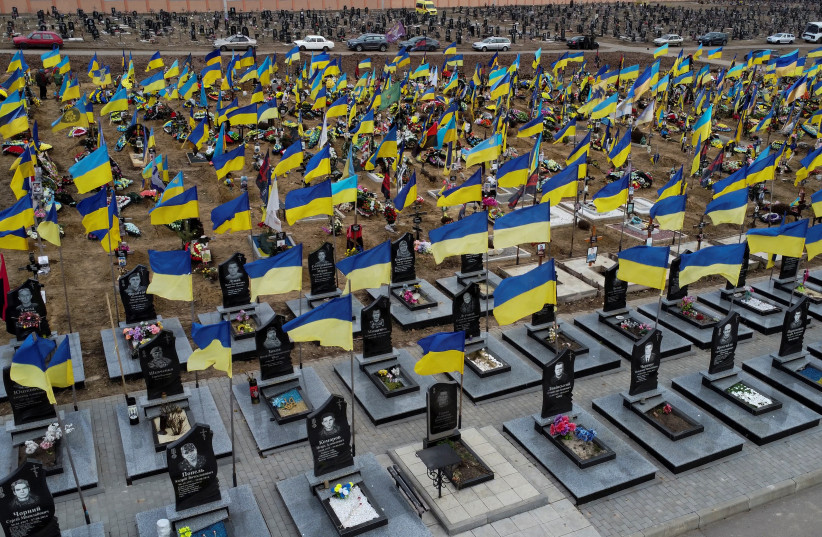NATO chief Jens Stoltenberg visited Kyiv on Thursday for the first time since Russia's full-scale invasion, showing the military alliance's support for Ukraine as it prepares to launch a counteroffensive.
Stoltenberg laid a wreathe to honor Ukrainian soldiers who have been killed fighting in the east of the country, and reviewed captured Russian armored vehicles on the capital's St Michael's Square.
Ukrainian leaders and NATO officials did not immediately make any announcements about the trip. Wartime visits by foreign officials are often shrouded in secrecy but top leaders visiting Kyiv often hold talks with President Volodymyr Zelenskiy.
Stoltenberg began his unannounced trip at a vital juncture in Russia's almost 14-month-old invasion which has killed thousands, uprooted millions, destroyed cities and devastated the Ukrainian economy.
After weathering a Russian winter and spring offensive that has made only small advances in the east, Ukraine now hopes to retake land in its south and east in a counteroffensive in the coming weeks or months.

After paying his respects to Ukrainian soldiers, the NATO secretary-general got into a car and drove off after the event, a Reuters photographer said.
History of the conflict
The North Atlantic Treaty Organization has supported Ukraine throughout the war, with member states sending weapons but not fighting troops. Kyiv has repeatedly called for more weapons from its allies.
Ukraine sees its future in the alliance and last September announced a bid for fast-track membership after the Kremlin said it had have annexed four Ukrainian regions that its troops have partially occupied.
Moscow regards NATO as a hostile military bloc bent on encroaching on what it sees as its sphere of influence. Ukraine gained independence from the Russia-led Soviet Union in 1991.
Russia did not immediately comment on Stoltenberg's visit.
Support for Ukraine
Stoltenberg's visit to Kyiv comes at a vital juncture in Russia's almost 14-month-old invasion which has killed thousands, uprooted millions, destroyed cities and devastated the Ukrainian economy.
After weathering a Russian winter and spring offensive that has made only small advances in the east, Ukraine now hopes to retake land in its south and east in a counteroffensive in the coming weeks or months.
Stoltenberg began his trip a day before NATO defense officials discuss new military supplies for Ukraine at their latest meeting at the Ramstein Air Base in Germany.
The North Atlantic Treaty Organization has supported Ukraine throughout the war, with member states sending weapons but not fighting troops. Kyiv has repeatedly called for more weapons from its allies.
Denmark and the Netherlands announced on Thursday they would jointly donate 14 Leopard 2 tanks.
On Wednesday, Washington announced $325 million in new military aid, including ammunition for High Mobility Artillery Rocket Systems (HIMARS), advanced missiles and anti-tank mines.
President Volodymyr Zelensky said on Thursday it was time for NATO to take the political decision to invite Ukraine to join the military alliance, and that Kyiv wanted to know when it would become a member.
The Ukrainian leader told a joint news conference in Kyiv with NATO chief Jens Stoltenberg that a NATO summit in Vilnius in July could become "historic", and that he had been invited to attend.
"I am grateful for the invitation to visit the summit, but it is also important for Ukraine to receive the corresponding invitation," he told reporters.
"There is not a single objective barrier to the political decision to invite Ukraine into the alliance and now, when most people in NATO countries and the majority of Ukrainians support NATO accession, is the time for the corresponding decisions."
